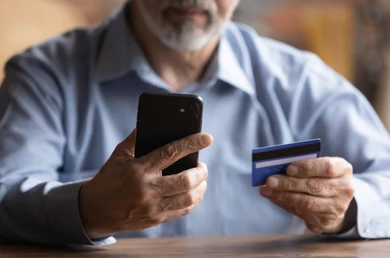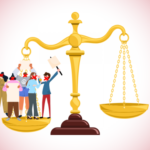Experts note that digital health wallets can do for healthcare what mobile banking did for financial sectors.
One hot afternoon last year, Hauwa Hassan took her five-year-old son, who was burning with fever, to the hospital.
The doctor diagnosed malaria and recommended medicine. But Hauwa hesitated—she had no cash. She opened up her phone, checked her savings app, and sighed.
Minutes later, she called her sister for help. By the time she raised enough money, her boy’s condition had worsened.
Hauwa’s story mirrors a wider reality—too many Nigerians are locked out of timely healthcare because of financial constraints.
Medical emergencies demand immediate funds, yet over 75% of rural Nigerians live in poverty, and this delay between falling ill and finding the required funds often means the difference between life and death.
This is where the notion of digital health wallets is quietly gaining momentum—a technology-based concept that helps individuals save and pay for healthcare through digital health wallets.
The problem with healthcare financing in Nigeria
Out-of-pocket payment continues to be Nigeria’s main healthcare financing channel. According to the World Health Organisation (WHO), Nigerians pay a whopping 77% of their healthcare costs, one of the highest rates globally, out of their pockets.
For families living hand-to-mouth, this creates a vicious cycle: health shocks drive households further into poverty, while poverty renders it difficult to purchase healthcare on time.
This problem is compounded by the high cost of treatment; for example, treating malaria costs between ₦3,500 and ₦8,000 in public hospitals and higher in private clinics.
Chronic diseases such as diabetes or high blood pressure are even more costly, typically ₦20,000–₦50,000 per month for drug therapy alone, and without pre-arranged financing, very many Nigerians either delay or abandon treatment altogether.
The cost is staggering — Nigeria accounts for 34% of global maternal mortality, and treatable diseases such as malaria still claim lives annually, doctors say financial barriers are deadlier than diseases.
What is a health wallet?
A health wallet is essentially a digital account, accessible via mobile phones or payment platforms dedicated to healthcare spending.
Users can save small amounts periodically, get transfers from family or employer, and pay hospitals directly whenever needed.
Think of it as a pocket-sized health fund, covered from daily expenditure, just as mobile money transformed financial inclusion, health wallets are now being positioned as a way to transform healthcare financing.
Platforms like Clafiya, Outpost health are revolutionising healthcare services, making them affordable and accessible for families.
Why digital health matters
Nigeria has one of Africa’s fastest-growing fintech landscapes, with over 200 million mobile connections and deep penetration of USSD services for low-income users. This makes digital platforms a natural backbone for digital health wallets.
Experts note that if properly scaled, digital health wallets could do for healthcare what mobile banking did for financial services – democratise access.
“Patients come to us late, often since they have no money in hand, if digital wallets can help these people create a reserve, even ₦500 at a time, it could keep unnecessary deaths down,” says Ogechi Primus, a doctor based in Abuja.
The consequences are devastating; every year, over 200,000 Nigerians die from malaria, many because they delayed seeking care until it was too late.
For millions of Nigerians the cost of emergency treatment is simply unbearable, yet this grim reality presents an opportunity: if people are already spending so much directly, channelling these expenses into structured digital health wallets could ultimately save lives.
Barriers towards digital health
While digital health wallets hold promise, several challenges cramp their widespread adoption in Nigeria.
Trust remains the biggest hurdle; many Nigerians are wary of digital schemes, shaped by experiences with fraud and failed government programmes.
Asking people to set aside scarce funds into digital health wallets—which they cannot easily access for daily needs—demands a foundation of transparency and accountability.
Also in rural areas, where about 61% of Nigerians live, only about 43% had access to the Internet. Poor network coverage and limited digital infrastructure make integration difficult.
Finally, gaps in digital literacy present a major barrier. While mobile penetration is high, older citizens and rural dwellers often lack the knowledge or confidence to navigate digital platforms. Scaling adoption will require massive public education campaigns to ensure inclusivity.
Digital solutions
Despite these drawbacks, some innovative models are emerging. Several fintech firms are piloting health wallets that accompany Health Maintenance Organisations, or HMOs
Payment can be made in instalments—with as little as ₦100 a day—which can be redeemed eventually to pay for hospital visits. Community savings groups are also experimenting with integration.
A U.S.-based project, HealthCare Mobile, allows rural Nigerians to pay for mobile, home-based care via USSD platforms, even in offline areas. While not an actual wallet, it illustrates how payments and care can be stitched together digitally in low-infrastructure settings.
For Hauwa and others like her, survival should not depend on last-minute phone calls or luck. Digital health wallets may not eliminate all barriers, but they signal a practical step towards dignified and affordable healthcare.
Summary not available at this time.






